 Thank You!
Thank You!
Your votes and comments encourage our guide authors to continue
creating helpful guides for the League of Legends community.
Recommended Items
Runes: Aftershock

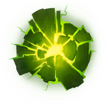
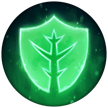
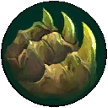
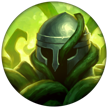

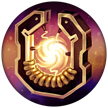

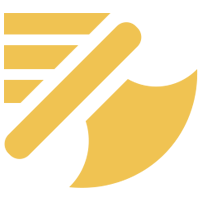


+10% Attack Speed
+2% Movement Speed
+65 Base Health
Spells:


Flash

Ignite
Items
Ability Order Ability Sequence

Staggering Blow (PASSIVE)
Nautilus Passive Ability
Threats & Synergies
 Threats
Threats
 Synergies
Synergies
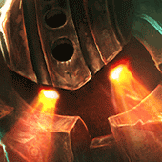 Show All
Show All
 Extreme Threats
Extreme Threats

 Ideal Synergies
Ideal Synergies


Karma
Karma is a hard lane as she offers a lot of utility and damage. Avoid her R + Q and you should be fine. She won’t be an instant oneshot as she has some durability in her kit with her E or her R+W. Be careful in what fights you pick.

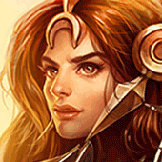
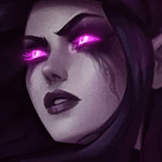
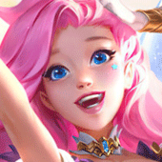
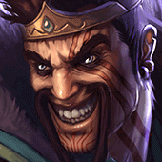
Draven
With a Draven you want to get ahead as soon as you can. Nautilus' aggression can you help achieve this.

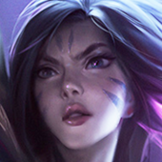
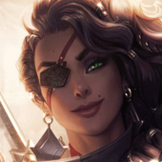
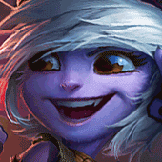
 Synergies
Synergies

Draven
With a Draven you want to get ahead as soon as you can. Nautilus' aggression can you help achieve this.




Champion Build Guide

|
Greetings fellow support players, welcome to my This guide has been written and checked by me. If you have any additions feel free to contact me. I am planning to update the guide every patch to keep you guys up to date on the newest builds, strategies and matchups. For other I hope this guide will make you play |

|
+ High base damage + Great CC tools + Great teamfighting potential + A lot of roaming potential + Strong lane phase + Pretty tanky late game |
- Squishy in lane - Low mobility - Long cooldowns - No way out of fights |

|
This is a pretty strong passive in my opinion. It is strong reliable CC to help you lock down a target for a long time. When used correctly you can chain your CC abilities to maximize the CC duration. |
|
This is |
|
When you engage this will help you endure the fight a little longer. This also scales with your max HP which increases the syngery with the items you want to build. |
|
This ability is can be used offensively for damage and sticking to the target or defensively when running away. It’s good to get some early points into this ability as the slow increases. |
|
The ult is fairly easy to use, by just clicking a target and watch them being knocked up. If you want to optimally use this ult try to look for a target that has more enemies between you and them. This way you get more knockups and more value out of your ult. |

The levelling sequence I use for
Your needs in game can also be dependant on what you level in the first 3 levels of the game. In matchups where you need more sustain, such as a

|

|
|
|
|
|
|
|
|

|
|
|
|
|
|
|
|

|
Everyone will be starting with a After finishing the first quest at 400 gold the The When finishing the second quest at a 800 gold you receive a |

|
Celestial Opposition |

|
Solstice Sleigh |

|
Bloodsong |

|
The following section will describe the viable boots options for |

|
Plated Steelcaps |

|
Mercury's Treads If you are losing lane or the enemy team has a lot of CC, |

| The following section will describe the items you might want to include into your build. These are my commonly used items and are the best in my opinion: |

|
Locket of the Iron Solari |

|
Redemption |

|
Thornmail |

|
Force of Nature |

|
Frozen Heart |

|
Knight's vow |

 ALISTAR ALISTAR |
 AMUMU AMUMU |
 ASHE ASHE |
 BARD BARD |
 BLITZCRANK BLITZCRANK |
 BRAND BRAND |
 BRAUM BRAUM |
 FIDDLESTICKS FIDDLESTICKS |
 JANNA JANNA |
 KARMA KARMA |
 LEONA LEONA |
 LULU LULU |
 LUX LUX |
 MAOKAI MAOKAI |
 MILIO MILIO |
 MORGANA MORGANA |
 NAMI NAMI |
 PANTHEON PANTHEON |
 POPPY POPPY |
 PYKE PYKE |
 RAKAN RAKAN |
 RELL RELL |
 RENATA GLASC RENATA GLASC |
 SENNA SENNA |
 SERAPHINE SERAPHINE |
 SHACO SHACO |
 SONA SONA |
 SORAKA SORAKA |
 SWAIN SWAIN |
 TAHM KENCH TAHM KENCH |
 TARIC TARIC |
 THRESH THRESH |
 VEL'KOZ VEL'KOZ |
 XERATH XERATH |
 YUUMI YUUMI |
 ZILEAN ZILEAN |
 ZYRA ZYRA |

|
|
| You have to be wary of lane state no matter the matchup you are in. There are 3 important wave states that you should acknowledge: |
|
Freeze – Freezing is manipulating your minion wave to stay in the same place for a given amount of time. This is the hardest form of wave management, especially in the botlane as you are dependent on your ADC and your own ability of wave management. Freezing is done by only last hitting the minions and matching minions damage with your opponent. The way you setup a freeze is linked to how close you are to your tower. The closer to your tower the more ranged minions you need, this is because your minions arrive quicker to lane then the enemy minions. The picture shows in what area you need a certain amount of ranged minions to freeze. Learning to freeze effectively requires some practice so don’t give up after the first one doesn’t work out. You want to freeze your wave when you are ahead or when you are in a difficult matchup and your ADC can farm safely so you can roam. |

|
| Slow push – Slow pushing already says what is does, it slowly pushes the wave. This one is easier than a Freeze as you don’t have to be focussing on what the enemy does. All you want to do is killing the caster minions in the wave and there you have it, a slow push. Slow pushing is something you want to avoid during laning phase in botlane. When you leave lane and the enemies have based you almost always want to be fast pushing the wave. The only time slow pushing is applied is in the later stages of the game where you want to prepare waves by slow pushing them in the side lane. This either draws attention of at least one enemy so you can make a play across the map or it builds towards a massive minion wave which helps you siege or denies your opponents a lot of experience and gold. |
|
Fast push – Fast pushing is important during the laning phase. Fast pushing is done by killing all the melee minions of a wave and even clearing a complete wave in such a way that the wave crashes into the tower and starts slow pushing back to you. Fast pushing when the enemy botlane has backed denies them a lot of gold and experience while you get a good timing to base and get some items and catch the wave that bounced back from the tower. Another viable reason to do so, is to roam. While the wave is under the enemy tower try to get some deep vision in the enemy jungle or look for a roam midlane. The last thing you can do with a fast push is setting up a dive. If the enemy botlane decides to stay you can have a free kill, if they back off they lose gold and experience. I only recommend diving when you know you can get a free kill and don’t risk the fact that you can fall behind because of a misplayed dive. Another important part of the laning phase is to help out your jungler when he is invading or fighting for scuttle crab. Try to fast push the wave and follow him into the jungle to help him fight. By fast pushing you will force the enemy botlane to either miss the wave or leave their jungler for dead. |

|
In the early moments of the game, hitting level 2 can change everything for The moment you hit level 2, the air in bot lane shifts. With your In just a few seconds, you’ve set the pace of the lane. Whether they flash away, burn a heal, or even die—this is the power of a well-timed level 2 engage from |

|
As a tank and crowd-control master, positioning is everything for In lane, you want to stay slightly ahead of your ADC. Not too far forward that you get caught, but just close enough to shield them from danger. Your size and threat mean enemies will think twice before diving onto your carry if you’re standing between them. When it comes to setting up engages, patience is key. Don’t rush into fights—wait for the right moment, usually when the enemy oversteps or uses an important ability. As Nautilus, your While disengaging your position is also important, make sure if someone is to die it’s you and you make sure that your team gets out alive. You can use |

|
Recalling is an important aspect of laning in general, but especially in botlane you have to time it correctly. As a support you always want to try and synchronize your recall with your ADC. When you want to Recall you are looking to push the minion wave under the enemy tower, as this gives you enough time to recall and come back to lane to catch the enemy wave pushing in. In the example on the right you see |

|
As the game progresses and laning phase ends, Your But being a tank isn’t just about diving in; it’s also about peeling for your team. If the enemy’s assassins or bruisers dive onto your ADC or mid-laner, it's your job to stand between them. Use your crowd control— |

|
When teamfights break out, As fights begin, your eyes should be locked onto the enemy backline—their carries, their damage dealers. Position yourself in a way that you can land But sometimes, you’ll need to play the protector. If your own carries are being threatened, it’s your duty to stop the enemy in their tracks. Use In the chaos of battle, the right hook or ultimate can change everything. Be the unshakable anchor for your team—whether it’s holding the line or diving in to start the fight. Every ability you use can turn the tide of battle in favor of your team. |

| As Nautilus you can do a lot of roaming and get a lot of value out of this by putting teammates other than your ADC ahead. With runes such as Water Walking and Celerity or items such as Mobility Boots your roaming becomes a threat as you will quickly move around the map. There are some rules linked to roaming: |
-
1. Only roam when your minion wave is under the enemy tower or your ADC can farm safely in botlane.
2. Only roam when the enemy midlaner isn’t pushed under his tower so you can make something happen.
| If one of these requirements is not met do NOT roam as this will put you or your ADC in a bad spot. You can roam from two different situations; you either roam from botlane after pushing in the wave or when you pushed the wave and come back from base instantly look to make something happen in the river area. The following pictures are coming from the site of mobalytics. For any further information on roaming have a look here. |
|
Roaming from base The first situation we are looking at is roaming from base. On the right is shown with roam pathings when coming from base. |

|
|
Roaming from botlane (Blue side) The second situation is when you are roaming from botlane. In this example we look at |

|
|
Roaming from botlane (Red side) The same goes for mr. |

|
| In these examples I only talk about setting up a gank on midlane. When following these green and purple paths it can also just be as valuable to place down wards so you can see the opposing team path along these routes! See the warding chapters for more info on that. |

|
Vision is one of the key things a support player has to do within his team. You are responsible for vison setup around objectives; this means clearing enemy vision and establishing your own. Not only around objectives but also inside the enemy jungle to spot enemies walking around or around your lane to spot out ganks or roams from enemies. In the examples below the red circles indicate Early Game |
 |
1. This ward is a standard ward when you are on your side of the lane. It spots out jungle ganks and it gives your jungler safety to roam into the river to gank or go for an invade. 2. This ward is a standard ward when you are on the enemy side of the lane. This gives you as Support windows to roam or create deep vision because the enemy won’t know where you go. 3. This ward is good when someone else used his |
|
4. This ward is a strong ward around minute 3. If the enemy jungler is clearing towards botside he will be there between minute 3 and 3:30. So seeing him pass on the ward helps a lot to avoid getting ganked. 5. This ward is good to cover a dive. If you are feeling you will get dove or you have no info on the enemy midlaner and jungler this ward is really good. It shows people in your side of the jungle which also helps your jungler. 6. You can ward the lane bushes when you think you need a ward in here. These wards are highly advisable when the enemy support is playing a lot around the bushes or you suspect a lane gank. 7. A ward in the middle of the river to check activity around 8. This ward can spot out the enemy jungler entering or leaving the river and if he ganks midlane, this ward is helpful for you midlaner. 9. This ward is useful to spot out lane ganks or for an ally to 10. This ward is deeper into the enemy jungle and helps getting info on the enemy jungler. Dragon Setup |
 |
1. This ward is a good ward to deny enemy vision inside the 2. If there is already a ward in the pit, this ward is very helpful because it shows the enemy pathing from midlane towards you if that is the case and it gives your carries time to position correctly in fights. 3. If there is already a ward in the pit, this ward is very helpful because it spots out enemy flanks from your jungle. This is the least useful of the 3 control wards so you could consider a stealth ward or no ward at all here. |
|
4. This ward is good when your opponent just resets from a cross map play and you try to rush/sneak a dragon. Placing this ward will give you enough space to adapt according to the situation. 5. This ward is good when your opponent just resets from a cross map play and you try to rush/sneak a dragon. Placing this ward will give you enough space to adapt according to the situation. Try to have either this ward or ward 2 in position (can be a 6. This ward comes in handy when the enemy just pushed out their wave from the first botlane tower or closer to their base. This way you can see them coming your way and if they attempt to use a Blast Cone when present. 7. This ward is good when your opponent is pushing in mid and you try to sneak a 8. This ward a deeper variant on ward 5. This gives you more time to adapt, but less information for a last moment decision. 9. This ward a deeper variant on ward 6. This gives you more time to adapt, but less information for a last moment decision. Baron setup |
 |
1. This ward is a good ward to deny enemy vision inside the 2. When there is a 3. This ward is good because it can show you enemies trying to get behind the pit or flank you from your own jungle. This ward will also help your carries to position accordingly. You either have to place ward 2 or 3. |
|
4. This ward shows enemies coming from the botside. It will help your carries position accordingly. 5. This ward is important when trying to sneak a 6. This ward will spot out enemies that just came from base and are pathing through topside (can also be a 7. This ward will spot out enemies that just came from base and are pathing through midlane. 8. This ward comes in handy when the enemy just pushed out midlane and are taking the safe route from midlane. This alerts your carries and gives them a lot of time to reposition. 9. This ward will help your carries position correctly if the enemy decides to engage from the topside if they just pushed out their toplane wave from their first tower or closer to their base. 10. This ward helps with fast decision making. You can spot out engages coming from across the wall easier and see if the enemy wants to try and fight you. |

|
Vision is one of the key things a support player has to do within his team. You are responsible for vison setup around objectives; this means clearing enemy vision and establishing your own. Not only around objectives but also inside the enemy jungle to spot enemies walking around or around your lane to spot out ganks or roams from enemies. In the examples below the red circles indicate Early Game |
 |
1. This ward is a standard ward when you are on your side of the lane. It spots out jungle ganks and it gives your jungler safety to roam into the river to gank or go for an invade. 2. This ward is a standard ward when you are on the enemy side of the lane. This gives you as support windows to roam or create deep vision because the enemy won’t know where you go. 3. This ward is good when someone else used his |
|
4. This ward is good to cover a dive. If you are feeling you will get dove or you have no info on the enemy midlaner and jungler this ward is really good. It shows people in your side of the jungle which also helps your jungler. 5. You can ward the lane bushes when you think you need a ward in here. Especially when you play versus a support that plays a lot around the bushes. Also when you feel like a lane gank is coming you need to make sure you have vision to spot that out. 6. Good ward in the middle of the river that spots out action around 7. This ward is good to see when the enemy jungler moves into the river and you can maybe collapse on him with your mid/jungler. Furthermore, this ward is important to get down at around 3 minutes. When the jungler is pathing towards botside he will arrive between 3 minutes and 3:30. 8. This ward can spot out the enemy jungler entering or leaving the river and if he ganks midlane, this ward is helpful for you midlaner. 9. This ward will help scouting out lane ganks early and will give information on the enemy jungler. 10. This ward can spot out the enemy jungler when he is clearing his botside. If placed correctly it spots all 4 entrances of this point. Dragon Setup |
 |
1. This ward is a good ward to deny enemy vision inside the 2. If there is already a ward in the pit, this ward is very helpful because it shows the enemy trying to get behind the pit from midlane. Having a 3. If there is already a ward in the pit, this ward is very helpful because it shows the enemy trying to get behind the pit from botlane. Having a |
|
4. This ward is good when your opponent is pushing in mid and you try to sneak a 5. This ward is good when your opponent just resets from a cross map play and you try to rush/sneak a dragon. Placing this ward will give you enough space to adept according to the situation. Try to have either this ward or ward 6 in position. 6. This ward is worth it when the enemy is hard pushing botlane and you try to sneak a 7. This ward comes in handy when the enemy just pushed out their wave in midlane. This way you can see them coming your way from a longder distance and if they try to engage on you. 8. This ward spots the enemies that are coming from base through midlane. These give early information on their position but won’t help with last minute decision making. 9. This ward spots the enemies that are coming from base through botlane. These give early information on their position but won’t help with last minute decision making. Baron setup |
 |
1. This ward is a good ward to deny enemy vision inside the 2. When there is a 3. This ward is good because it can show you enemies trying to flank you from your own jungle. This ward will also help your carries to position accordingly. You either have to place ward 2 or 3. |
|
4. This ward comes in handy when the enemy just pushed out midlane and are taking the safe route from midlane. This alerts your carries and gives them a lot of time to reposition. This will also show any enemies trying to get behind the pit. 5. This ward is important as it spots out enemies trying to steal the 6. This ward will spot out enemies that just came from base and are pathing through topside (can also be a 7. This ward will help your carries position correctly if the enemy decides to engage from the topside if they just pushed out their toplane wave from their first tower or closer to their base. 8. This ward will help your carries position correctly if the enemy decides to engage from the midlane if they just pushed out their mid wave. You should have either this ward or ward 2 in place. 9. This ward is important when trying to sneak a 10. This ward is important when trying to sneak a |

|
Thank you for reaching the depths of my |
 Changelog
Changelog







 78,841
78,841
 2
2











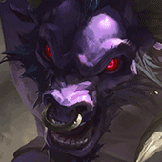
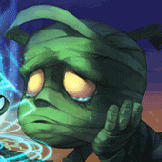
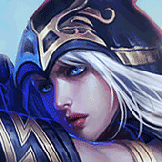
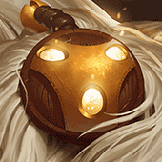
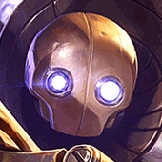

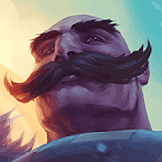
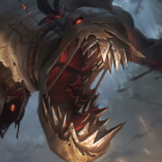
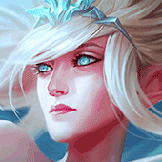
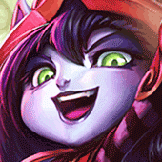

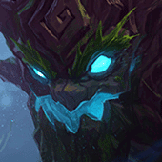
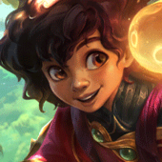
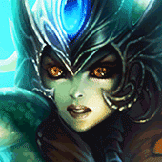
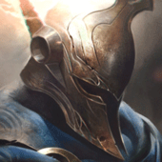

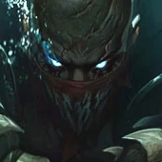

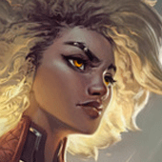
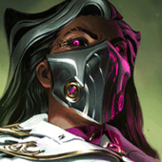
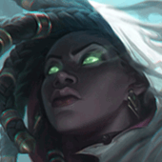
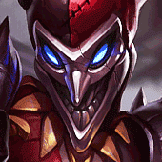
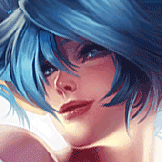
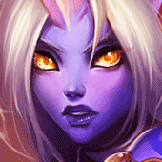
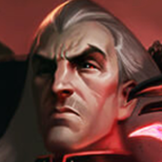
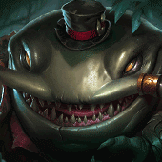

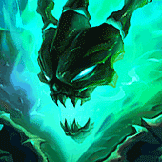
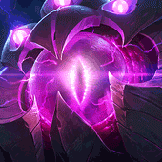
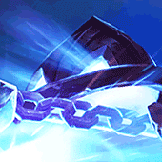
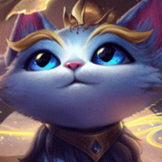
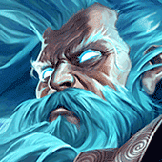
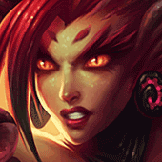
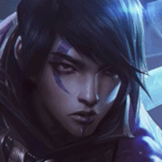
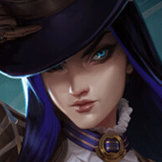
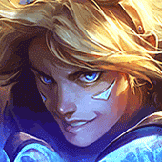
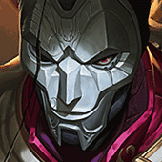
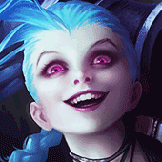
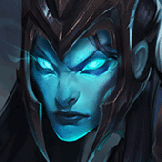
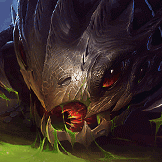
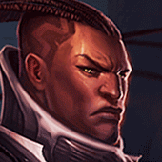
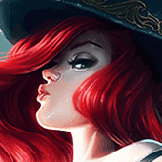
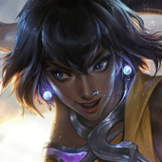
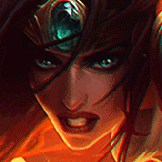
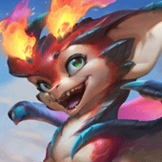

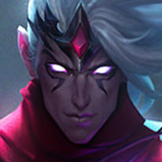
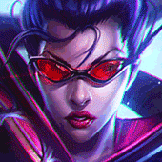
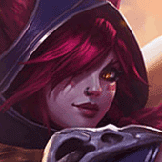
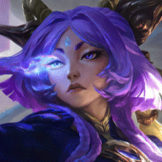
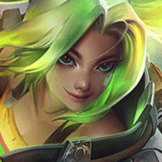









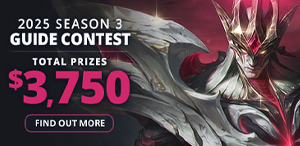

You must be logged in to comment. Please login or register.